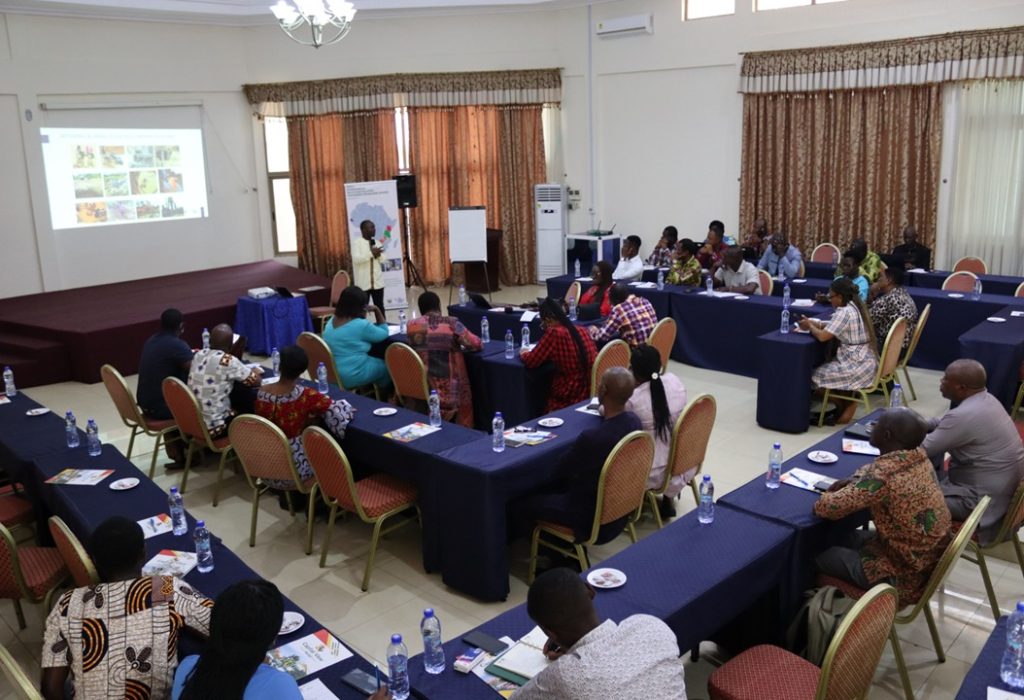By Hafsa Obeng
Accra, Feb. 22, GNA – The Environmental Protection Agency (EPA) has organized a training workshop on Grievance Redress Mechanism (GRM) for institutional stakeholders in Koforidua.
The training workshop, which was organised for the southern sector, comprised institutional stakeholders from the Eastern, Greater Accra, and Western regions.
It was to build the capacity of the institutions to address grievances that may emanate from project activities under the world bank sponsored Africa Environmental Health Pollution
Management Programme (AEHPMP) and the Ghana Landscape Restoration Small-scale Mining Project (GLRSMP).
Speaking at the opening ceremony, Mr. Felix Addo Okyireh, EPA Regional Director, Eastern Region, said the contribution and commitment of stakeholders were key to the successful implementation of the project.
He expressed delight at the development of a mechanism to address possible grievances from the project interventions.
Mr. Larry Kotoe, AEHPMP Project Coordinator, said the AEHPMP aimed to reduce exposure to mercury and unintentionally Persistent Organic Pollutants (uPOPs) and strengthened institutional capacity to manage and regulate mercury use in artisanal small-scale gold mining and e-waste.

He said the GLRSMP also sought to strengthen integrated landscape management,
formalization of artisanal and small-scale mining, and increase benefits to communities in the targeted degraded savannah and cocoa forest areas.
Mr. Kotoe said the proposed single GRM for both projects was to ensure the utilization of common structures and resources.
He disclosed that the AEHPMP would establish clean mining demonstration centres for the training and promotion of alternative mercury free technology in selected mining communities.
Touching on e-waste, Mr Kotoe said the project would construct collection and holding centres for electrical and electronic waste.
Madam Sarah Antwi Boasiako, Senior Social Development Specialist, World Bank, said “a GRM is a set of arrangements that enable local communities, employees, and other affected stakeholders to raise grievances and seek redress when they perceive a negative impact
arising from the Project activities”.
She said the bank required the borrower to provide a grievance mechanism process or procedure (GM) to receive and facilitate resolution of concerns and grievances of project-affected parties arising in connection with World Bank funded project.
“GRM should be “people centred and not cases. Confidentiality and survivor safety are critical to the successful implementation of GRM, and therefore, right choices should be made to ensure the protection of complainants.”
Mr. Osei Karikari, Team-lead for Safeguards on the projects, said the single GRM has a four-level structure with a fair representation of state and non-state actors to address grievances.
Mr. Karikari said the GRM has multiple submission channels, and grievance reporting and resolutions commences at the community level.
“Avenues for use of confidants are allowed, and that anonymity and confidentiality are critical to the protection of informants.”
Mr. Justice Odoi, A Senior Environmental Specialist, World Bank, said that the Environment and Social Risk Management was a framework developed by the bank to ensure funded projects sustainably manage environmental and social issues.
He added that “Environmental and social policies help ensure that people and the environment are protected from potential adverse impacts in investment projects.”
Mr Odoi said the Bank had 10 environmental and social standards for all bank funded projects, five of which were very relevant to the two projects.
Participants were drawn from selected MMDAs in the Eastern Region, Ghana Police Service,
UMat, DOVVSU, Department of Social Welfare, Minerals Commission, the World Bank and EPA
GNA